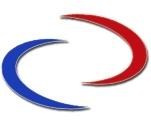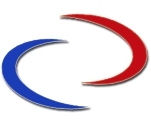Episodes

Thursday Oct 14, 2010
SELLING TO KOREA: MANUFACTURING AND THE KORUS FTA
Thursday Oct 14, 2010
Thursday Oct 14, 2010
Since negotiations on the KORUS FTA were concluded, there has been a wide ranging discussion of how the agreement impacts the U.S. automotive sector, but less focus on how the FTA impacts the wider U.S. manufacturing sector. Please join KEI for the first in a series of discussions on how the KORUS FTA would impact U.S. exporters to Korea. In this session, focusing on manufacturing beyond the issue of autos, the speakers will discuss what the current state of play is for U.S. manufacturers exporting to Korea, what challenges they face, and how the KORUS FTA will impact the business they do in Korea.

Tuesday Oct 12, 2010
Tuesday Oct 12, 2010
Since their normalization of relations, China has emerged as South Korea’s biggest trade partner and investment destination. Though this has strengthened the Sino-South Korean partnership, growing economic competition presents a new source of tension in the relationship that demands careful political management from both sides. China and South Korea have managed trade tensions such as the garlic (2000) and kimchi (2005) wars but the lack of institutional mechanisms regulating security relations has undermined similar progress in addressing bilateral security challenges including historical and territorial issues. The Cheonan incident in March 2010 marks the lowest point in China-ROK relations since diplomatic normalization in 1992 and demonstrates the relative weakness of institutional mechanisms for managing the political and security side of the China-ROK relationship. Join us on October 12 at KEI as Scott Snyder and See-Won Byun of the Center for U.S. Korea Policy present their paper on the topic.

Tuesday Oct 12, 2010
Tuesday Oct 12, 2010
On October 5, the Korea Economic Institute and the Global Business Dialogue hosted a a discussion of why other countries pursue free trade agreements.

Tuesday Sep 21, 2010
Tuesday Sep 21, 2010
This is an audio recording of an event hosted by the Korea Economic Institute in Washington, D.C. On September 21, 2010, Jeffrey Schott of the Peterson Institute for International Economics presented his paper in the KEI conference facility as a part of KEI’s KORUS FTA series. The event was titled: “What Policy Makers Need to Know about the KORUS FTA and the Future of U.S-Korea Trade Relations.” Mr. Schott is a senior fellow at the Peterson Institute, working on international trade policy and economic sanctions. A question-and-answer session that immediately followed the presentation is included in this recording.

Friday Sep 17, 2010
American Attitudes toward the Republic of Korea
Friday Sep 17, 2010
Friday Sep 17, 2010
On September 16th 2010, the Korea Economic Institute and the CSIS Korea Chair co-hosted an event to mark the release of a new public opinion survey of American attitudes toward the Republic of Korea conducted by The Chicago Council on Global Affairs. The survey, which is the first of its kind, covers a wide range of topics, including the future of the U.S.-ROK alliance, South Korea’s role in Asia, North Korea’s nuclear program, and the Korea-U.S. Free Trade Agreement. The panel featured a special report on the survey by Victor Cha, Korea Chair at the Center for Strategic and International Studies. Also included was commentary by Christopher Hill, Dean of the Josef Korbel School of International Studies at the University of Denver, and Marshall Bouton, President of The Chicago Council. The panel was chaired by Jack Pritchard, President of the Korea Economic Institute.

Friday Sep 17, 2010
North Korea, Libya, and Iran: Comparing Economic Sanction Regimes
Friday Sep 17, 2010
Friday Sep 17, 2010
This is an audio recording of an event hosted by the Korea Economic Institute in Washington, D.C. On September 15, 2010, Dr. Randall Newnham presented his research in the KEI conference facility as part of KEI’s Academic Paper Series. Dr. Newnham is a professor of political science at Penn State University. The title of his paper is “North Korea, Libya, and Iran: Comparing Economic Sanction Regimes.” A question-and-answer session that immediately followed the presentation is included in this recording.

